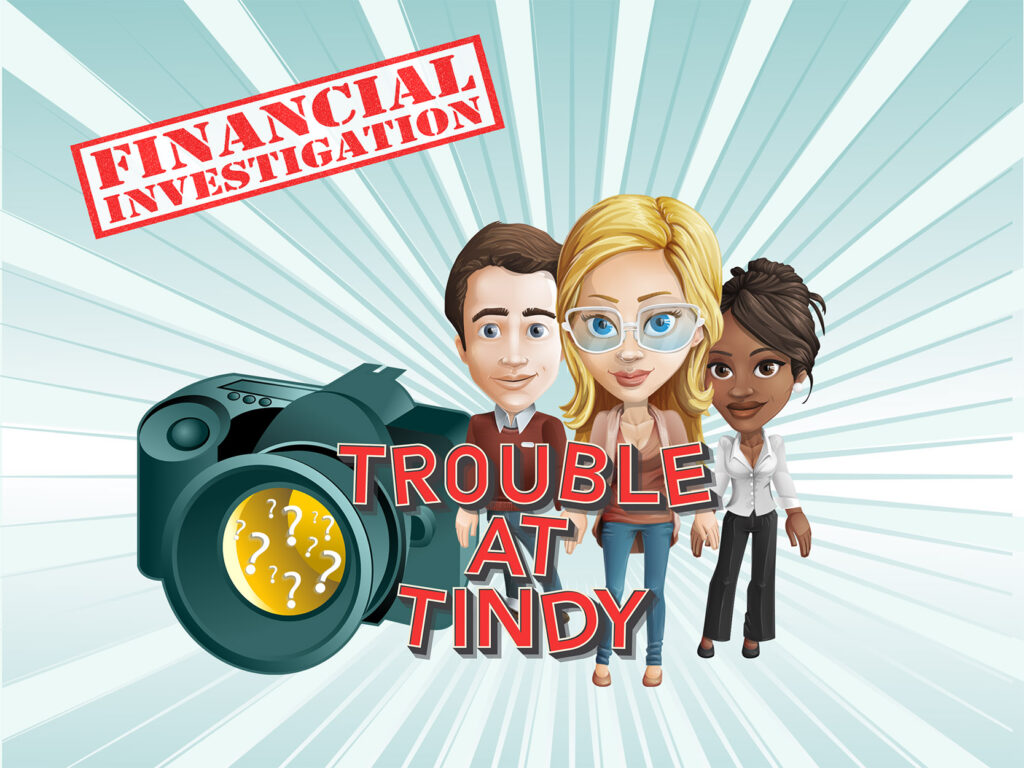For years, Terry College of Business professor Tina Carpenter has led her forensic accounting students through a cleverly designed whodunit to help teach forensic accounting. Now she’s turning her classroom role-playing into a virtual game.
Carpenter is developing a new version of her award-winning simulated fraud investigation. The game will blend intrigue and hands-on learning opportunities with unique technology that will increase its learning potential and reach.
“I am so grateful to the University of Georgia, the Terry College of Business and the J.M. Tull School of Accounting for providing innovation grants that helped me to dream big,” Carpenter said.
The UGA Center for Teaching and Learning (CTL) is funding the project with a $25,000 Learning Technologies Grant, and the simulation should be ready for students in spring 2022.
Carpenter is collaborating with accounting professor Cindy Durtschi of DePaul University; Avery Warner, a Terry Deer Run Fellow and UGA Foundation Fellow; and TrueUp, an independent gamified learning company. TrueUp was launched in 2018 after participating in the American Institute of Certified Public Accountants and CPA.com Startup Accelerator program.
Carpenter, who won UGA’s Creative Teaching Award in 2021 in recognition of her forensic accounting course, has been creatively reimagining her “real-life” fraud simulation since 2004, when she began her academic career at UGA.
In Carpenter’s class, students spend half the semester working on traditional coursework to build the necessary knowledge-base, then they break into teams to investigate the Athens Bulldogs, a fictional minor league baseball team with cooked books.
“It’s like one big game of Clue,” Carpenter said. “They get 20 pieces of evidence digitally to begin with, and then it’s up to them to uncover the information they need.”
Over the years, Carpenter has continued to reinvent the case to bring it to life. The case today includes a complex database of over 150 character responses and a library of more than 20 videos featuring witness testimony and crime scenes, as well as social media elements and data analytics tools. The result is an engaging, realistic experience that has long been a favorite of students in the Master of Accountancy program at Terry.
“Experiencing Dr. Carpenter’s audit simulation firsthand in 2006 accelerated my career development unbeknownst to me at the time. Her continued investment in this field, as well as incorporation of using data analytics in practice, provides UGA students an unmatched experience,” said former student Adam LeBlanc, now a senior manager at EY. “Simply put, practitioners struggle to find simulations that enhance and develop professional skepticism in a meaningful way. Dr. Carpenter’s forensic accounting class accomplishes exactly that.”
Carpenter’s research into using simulations and gamification in her courses at UGA, as well as in her research with practicing professionals, has shown that these types of programs can help individuals internalize complex concepts more easily, she said.
“Putting their knowledge into action allows them to make mistakes and make right decisions and get rewarded for those right decisions all in real-time,” Carpenter said. “Gamified simulations give them the feedback they need to help them process and deepen that knowledge.”
TrueUp was an ideal strategic partner, she said, because they were already familiar with accounting and financial services training programs. Plus, they had experience turning case studies and educational materials into engaging virtual games.
“Having a company that understood the rigor needed in the learning while having fun with the game part of the project has been key,” she said.
In the new game, students will investigate financial and international corruption and bribery schemes at Tindy, a global fashion company. They will interview animated suspects and witnesses, find security footage and documents, and do the kind of complex problem-solving that accompanies a real-life investigation. In this virtual simulation, they can experience finding fraud while working in teams, whether remotely or in a room together.
“We all enjoy playing games for fun,” she said. “Research shows that games also excite our curiosity and creativity. I am hoping to harness the power of games to ignite a passion for problem-solving and take students’ critical thinking to the next level.”

